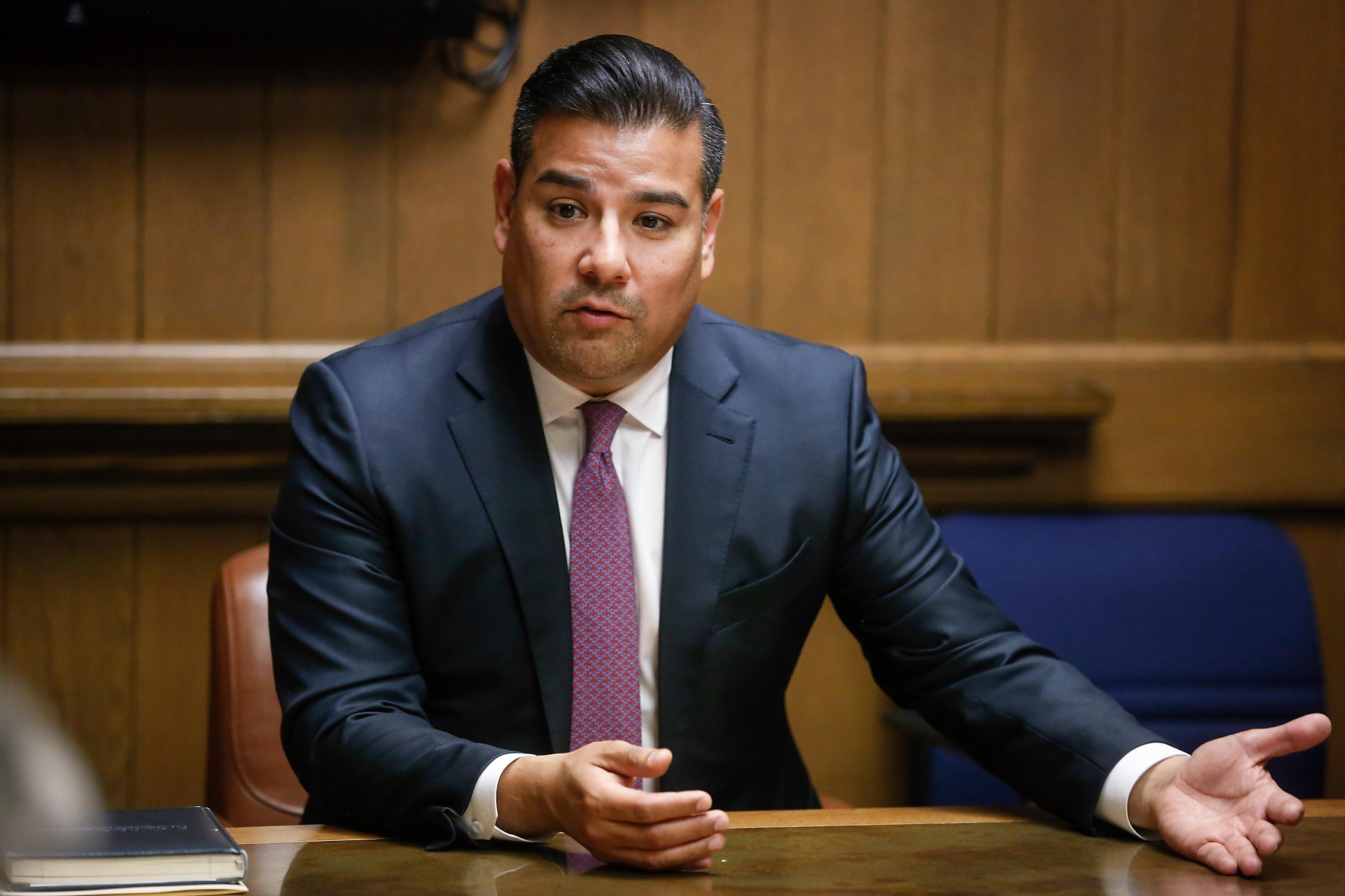Home>Finance>Who Pays For My Health Insurance While On Workers Comp In California


Finance
Who Pays For My Health Insurance While On Workers Comp In California
Modified: February 21, 2024
Find out who covers your health insurance expenses during your workers' compensation claim in California. Understand the financial aspects of workers' comp.
(Many of the links in this article redirect to a specific reviewed product. Your purchase of these products through affiliate links helps to generate commission for LiveWell, at no extra cost. Learn more)
Table of Contents
- Introduction
- Understanding Workers Compensation in California
- Health Insurance Coverage During Workers Compensation Leave
- Employer’s Responsibility to Maintain Health Insurance Coverage
- COBRA Coverage while on Workers Compensation
- Employee’s Responsibility for Health Insurance Premiums
- Financial Assistance Options for Health Insurance Premiums
- Impact of Workers Compensation on Health Insurance Benefits
- Conclusion
Introduction
When we think about work-related injuries, many of us focus on the immediate concerns such as medical treatment and time off from work. However, it’s crucial to consider the impact that a work-related injury or illness can have on our health insurance coverage. In the state of California, workers’ compensation is designed to provide benefits and medical treatment to employees who suffer injuries or illnesses arising out of their employment.
It is common for individuals who are on workers’ compensation leave to worry about who will pay for their health insurance during this period. Will the employer continue providing coverage or will the employee be responsible for finding alternative options? This article aims to shed light on the important topic of health insurance coverage while on workers’ compensation in California.
Understanding the intricacies of health insurance coverage during workers’ compensation leave is crucial for both employees and employers. By having a clear understanding of the regulations and responsibilities, all parties involved can navigate this period with confidence and peace of mind.
In the following sections, we will explore the specifics of workers’ compensation in California, the employer’s responsibility to maintain health insurance coverage, the employee’s responsibility for health insurance premiums, the availability of COBRA coverage, and potential financial assistance options. Let’s dive in and unravel the mysteries surrounding health insurance coverage during workers’ compensation leave in California.
Understanding Workers Compensation in California
Before delving into the details of health insurance coverage during workers’ compensation leave, it’s essential to have a solid understanding of workers’ compensation laws in California. Workers’ compensation is a state-mandated insurance program that provides benefits to employees who sustain work-related injuries or illnesses.
In California, the Division of Workers’ Compensation (DWC) governs the workers’ compensation system. The primary objective of this system is to ensure that injured workers receive timely medical treatment and wage replacement benefits, regardless of who was at fault for the injury or illness.
Under workers’ compensation, eligible employees are entitled to receive medical treatment necessary to recover from their work-related injuries or illnesses. This includes doctor’s visits, hospital stays, surgeries, medications, and rehabilitation services. Additionally, workers’ compensation provides temporary disability benefits to replace a portion of the wages an injured worker may lose while recovering.
It’s important to note that workers’ compensation is a no-fault system, meaning that the injured worker does not need to prove that their employer was negligent or at fault in order to receive benefits. As long as the injury or illness arose out of and in the course of employment, the employee is generally eligible for workers’ compensation benefits.
Employers in California are required by law to carry workers’ compensation insurance or have the means to self-insure. This insurance provides coverage for potential work-related injuries and illnesses, protecting both employees and employers.
Now that we have a basic understanding of workers’ compensation in California, let’s explore how it affects health insurance coverage during an employee’s leave from work due to a work-related injury or illness.
Health Insurance Coverage During Workers Compensation Leave
When an employee is on workers’ compensation leave in California, the question of health insurance coverage often arises. It is crucial to understand how the state’s laws and regulations handle health insurance during this period.
In most cases, employees who are on workers’ compensation leave will continue to have health insurance coverage provided by their employer. The employer is typically responsible for maintaining the employee’s current health insurance benefits. This means that the employee’s health insurance coverage should not be disrupted while they are on leave due to a work-related injury or illness.
It’s important for employees to communicate with their employer’s human resources department or benefits administrator to ensure that their health insurance coverage remains intact during their workers’ compensation leave. This includes providing any necessary documentation or updates regarding the work-related injury or illness.
It’s worth noting that the continuity of health insurance coverage during workers’ compensation leave varies depending on the specific circumstances and the policies in place at each individual workplace. Some employers may have specific guidelines or protocols for maintaining health insurance benefits during an employee’s absence, while others may adhere to the standard practices outlined by state laws.
If an employee experiences difficulties or inconsistencies in their health insurance coverage during workers’ compensation leave, it is advisable to seek legal counsel or contact California’s Division of Workers’ Compensation to ensure that their rights are protected and appropriate action is taken.
While the employer is generally responsible for maintaining health insurance coverage during workers’ compensation leave, there are instances where this may not be the case. One such instance is when an employee is terminated from their position while on workers’ compensation leave.
When an employee is terminated during their workers’ compensation leave, their health insurance coverage may be affected. In such cases, it is crucial for the employee to understand their rights and options regarding health insurance coverage. This is where COBRA coverage comes into play.
In the next section, we will explore the employer’s responsibility to maintain health insurance coverage and the availability of COBRA coverage for employees on workers’ compensation leave in California.
Employer’s Responsibility to Maintain Health Insurance Coverage
Employers in California generally have a responsibility to maintain an employee’s health insurance coverage during their workers’ compensation leave. This means that the employer should continue to provide the same level of health insurance benefits that the employee had prior to their work-related injury or illness.
The California Labor Code, specifically Section 3751, mandates that employers must continue providing health insurance coverage to employees who are on workers’ compensation leave. This requirement ensures that employees have access to necessary medical care and treatment during their recovery period.
Employers can fulfill their responsibility to maintain health insurance coverage through various methods. In some cases, the employer may choose to continue paying the health insurance premiums on behalf of the employee. This ensures that the coverage remains active and uninterrupted.
In other instances, the employer may require the employee to continue paying their share of the health insurance premiums while on workers’ compensation leave. The employee’s portion of the premiums is typically deducted from any workers’ compensation benefits received during this period.
It’s important for employers to communicate their specific health insurance coverage policies and procedures to employees who are going on workers’ compensation leave. This includes notifying employees of any changes or updates to their health insurance benefits during this time.
Employees should be proactive in understanding their rights and responsibilities when it comes to health insurance coverage during workers’ compensation leave. They should review their employer’s policies and reach out to the appropriate channels, such as the human resources department or benefits administrator, to seek clarification or address any concerns.
In situations where an employer fails to maintain health insurance coverage or improperly terminates an employee’s coverage during workers’ compensation leave, the employee may have legal recourse. It is advisable to consult with an attorney who specializes in workers’ compensation and employment law to explore the available options and protect their rights.
Next, we will discuss the availability of COBRA coverage as an alternative option for health insurance during workers’ compensation leave in California.
COBRA Coverage while on Workers Compensation
COBRA (Consolidated Omnibus Budget Reconciliation Act) coverage is a federal law that allows employees and their dependents to continue their health insurance coverage after experiencing a qualifying event that would otherwise result in the loss of coverage. While it is commonly associated with job loss, COBRA coverage can also be applicable to employees on workers’ compensation leave.
In California, employees who are on workers’ compensation leave have the right to elect for COBRA coverage if their health insurance benefits are terminated during this period. This means that if an employer terminates an employee’s health insurance coverage while they are on workers’ compensation leave, the employee can opt to continue their coverage through COBRA.
COBRA coverage allows employees and their dependents to retain the same health insurance coverage they had prior to the qualifying event. However, it’s important to note that the employee is responsible for paying the full cost of the health insurance premiums. This can often be more expensive than the employee’s portion of the premium when they were actively employed.
Under COBRA, the employee generally has 60 days from the date of termination of their health insurance coverage or the date they receive the COBRA election notice to decide whether to elect for COBRA coverage. If the employee chooses to elect COBRA, they must make the necessary premium payments to maintain the coverage.
It’s important to be aware that COBRA coverage has a limited duration. Typically, it can extend for up to 18 months, although certain qualifying events, such as disability, can extend the coverage period to 29 months. It’s crucial for employees to keep track of the expiration date of their COBRA coverage to ensure they have alternative health insurance coverage in place after it expires.
While COBRA coverage can be a viable option for employees on workers’ compensation leave, it’s important to evaluate whether it is the most cost-effective choice. Exploring other health insurance options, such as state-sponsored programs or private health insurance plans, may be more beneficial depending on individual circumstances.
Employees on workers’ compensation leave should consult with their employer’s human resources department or benefits administrator for guidance on COBRA coverage and to understand the specific requirements and costs associated with electing this option.
Next, we will discuss the employee’s responsibility for health insurance premiums while on workers’ compensation leave and potential financial assistance options.
Employee’s Responsibility for Health Insurance Premiums
While employers in California are generally responsible for maintaining an employee’s health insurance coverage during workers’ compensation leave, there are instances where the employee may be required to take on some responsibility for the health insurance premiums.
If an employer requires the employee to continue paying their portion of the health insurance premiums while on workers’ compensation leave, it means that the employee is responsible for keeping up with these payments to ensure the continuation of their coverage. The employee’s portion of the premiums is typically deducted from any workers’ compensation benefits they receive during this period.
It’s important for employees to understand their obligations and costs associated with health insurance premiums while on workers’ compensation leave. They should review their employer’s policies and communicate with the human resources department or benefits administrator to obtain clarity on these matters.
Additionally, employees should consider consulting with a workers’ compensation attorney or a financial advisor to determine how best to manage their finances during this period. It may be beneficial to explore potential options for reducing expenses or obtaining financial assistance, as discussed in the next section.
It’s important to note that employees who are responsible for health insurance premium payments while on workers’ compensation leave should ensure that they make the payments on time. Failure to do so may result in a loss of coverage, requiring the employee to seek alternative health insurance options such as COBRA coverage.
If an employee is facing challenges in meeting their health insurance premium obligations, they should communicate with their employer and explore potential solutions. In certain situations, an employer may be willing to make accommodations or provide assistance in navigating the financial aspects of health insurance during workers’ compensation leave.
Next, we will discuss potential financial assistance options for employees who are on workers’ compensation leave and struggling to meet their health insurance premium obligations.
Financial Assistance Options for Health Insurance Premiums
Employees who are on workers’ compensation leave in California and are struggling to meet their health insurance premium obligations have several potential financial assistance options to explore. These options can help alleviate the financial burden and ensure the continuation of health insurance coverage during this challenging period.
1. State-Sponsored Programs: California offers several state-sponsored programs that can provide financial assistance for health insurance premiums. One such program is Medi-Cal, which provides free or low-cost health insurance coverage to eligible individuals and families with limited income. Employees on workers’ compensation leave can determine whether they qualify for Medi-Cal and apply for enrollment.
2. Subsidized Marketplace Plans: The Affordable Care Act established the Health Insurance Marketplace, where individuals can explore and purchase health insurance plans. Depending on their income and household size, employees may be eligible for subsidies that can significantly lower their health insurance premiums. Applying through the Marketplace can help employees find an affordable plan that meets their needs.
3. Employer Assistance Programs: Some employers have assistance programs in place to support employees who are on workers’ compensation leave. These programs can provide financial aid or resources specifically allocated for health insurance premiums or medical expenses. Employees should inquire with their employer’s human resources department or benefits administrator to determine if such programs are available.
4. Non-Profit Organizations: There are non-profit organizations that offer assistance or grants to individuals in need of financial support for health insurance premiums. These organizations may have specific eligibility criteria or requirements, so employees should research and reach out to them to explore their options.
5. Worker’s Compensation Settlement: In some cases, employees may negotiate a worker’s compensation settlement for their work-related injury or illness. The settlement amount can be used to cover health insurance premiums or other related expenses during the recovery period. It’s important to consult with a workers’ compensation attorney to navigate the settlement process effectively.
Employees on workers’ compensation leave should thoroughly research these financial assistance options and determine which ones are applicable to their specific situation. It’s also wise to consult with a financial advisor or healthcare navigator who can provide guidance on selecting the most suitable option and navigating the application process.
By exploring these financial assistance options, employees can alleviate some of the financial burden associated with health insurance premiums and ensure the continuation of their coverage during their workers’ compensation leave.
Next, we will discuss the impact of workers’ compensation on health insurance benefits.
Impact of Workers Compensation on Health Insurance Benefits
Workers’ compensation leave can have implications for an employee’s health insurance benefits. It’s crucial to understand how workers’ compensation can impact health insurance coverage to ensure that employees are prepared and informed during this period.
One important consideration is that health insurance benefits may be affected if an employee is terminated while on workers’ compensation leave. In such cases, the employer may no longer be obligated to provide health insurance coverage. This can result in a loss of coverage for the employee and their dependents.
However, employees have the option to elect for COBRA coverage in situations where their health insurance benefits are terminated. COBRA allows individuals to continue their existing health insurance coverage, albeit at a higher cost since the employee is responsible for paying the full premium amount.
Additionally, while on workers’ compensation leave, employees may need to navigate the coordination of benefits between workers’ compensation and their health insurance. It’s important to understand how these benefits interact to avoid any potential issues or complications.
When an employee files a workers’ compensation claim, the workers’ compensation insurance carrier typically becomes primary for covering medical expenses related to the work-related injury or illness. This means that the employee will need to notify their healthcare providers that their treatment should be billed to the workers’ compensation carrier instead of their regular health insurance provider.
However, it’s important to note that regular health insurance coverage may still be applicable for non-work-related medical issues or pre-existing conditions during the workers’ compensation leave period. Employees should consult with their health insurance provider to understand how their coverage will be affected and to ensure proper coordination of benefits.
It’s also important for employees to be aware of any limitations or exclusions in their health insurance policy that may impact coverage while on workers’ compensation leave. Some policies may have specific provisions that restrict or limit coverage for work-related injuries or illnesses.
Overall, navigating the impact of workers’ compensation on health insurance benefits can be complex. Employees on workers’ compensation leave should consult with their employer’s human resources department, benefits administrator, or a workers’ compensation attorney to fully understand their rights, options, and any potential limitations or restrictions that may apply.
In the next section, we will conclude the article by summarizing the key points discussed in relation to health insurance coverage during workers’ compensation leave in California.
Conclusion
Ensuring health insurance coverage during workers’ compensation leave is crucial for employees in California. Understanding the laws and regulations surrounding health insurance benefits is essential to navigate this period effectively.
Employees in California generally have the right to maintain health insurance coverage while on workers’ compensation leave. Employers are typically responsible for maintaining the employee’s health insurance benefits, although there may be instances where the employee is required to contribute to the premium payments.
If an employer terminates an employee’s health insurance coverage during workers’ compensation leave, the employee has the option to elect for COBRA coverage. COBRA allows employees to continue their health insurance coverage but requires them to pay the full premium cost themselves.
Financial assistance options such as state-sponsored programs, subsidized marketplace plans, employer assistance programs, non-profit organizations, or worker’s compensation settlements can help alleviate the financial burden associated with health insurance premiums during workers’ compensation leave.
Employees should proactively communicate with their employer’s human resources department or benefits administrator to understand their rights and responsibilities regarding health insurance coverage. Seeking legal counsel or consulting with financial advisors can provide additional guidance and support.
In summary, maintaining health insurance coverage during workers’ compensation leave in California requires proactive communication and awareness of available options. By understanding the laws, employer responsibilities, employee obligations, financial assistance options, and potential impacts on health insurance benefits, employees can navigate this challenging period with confidence and peace of mind.
Remember, each situation is unique, and it is advisable to consult with professionals well-versed in workers’ compensation and health insurance to ensure individual needs are adequately addressed.














